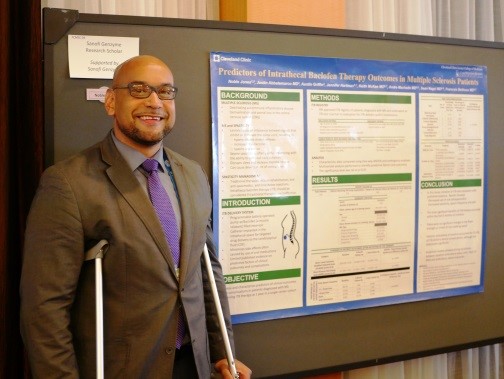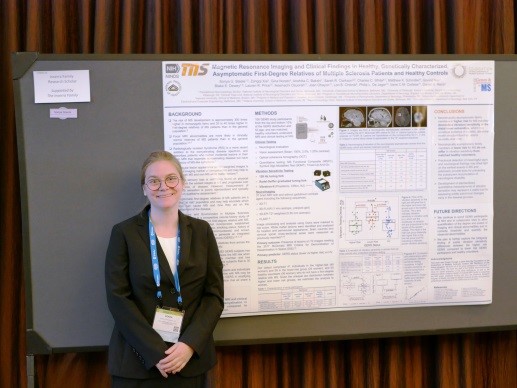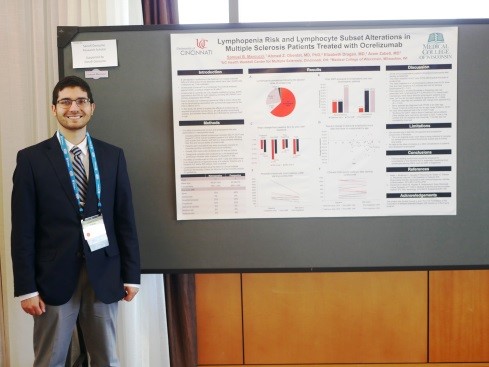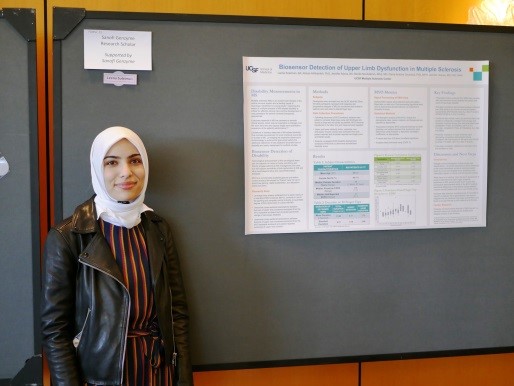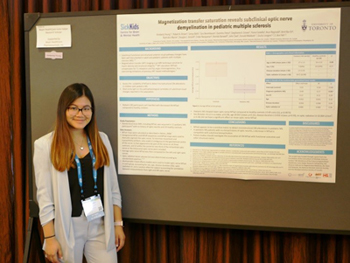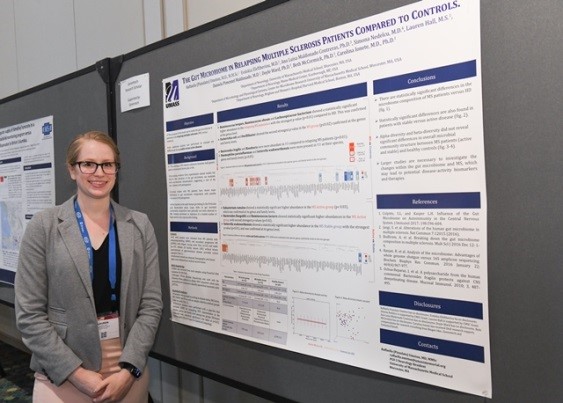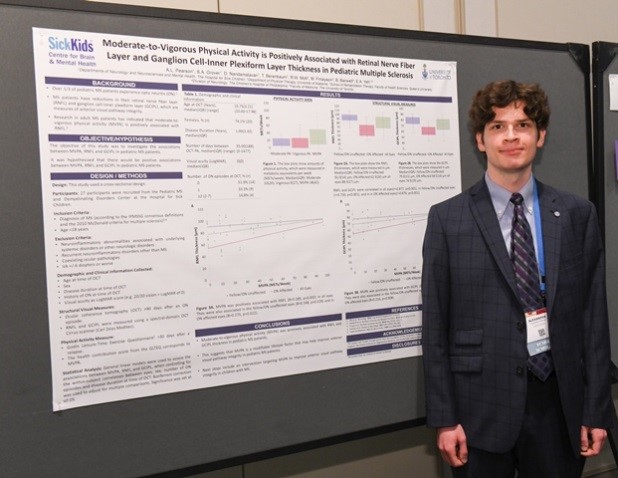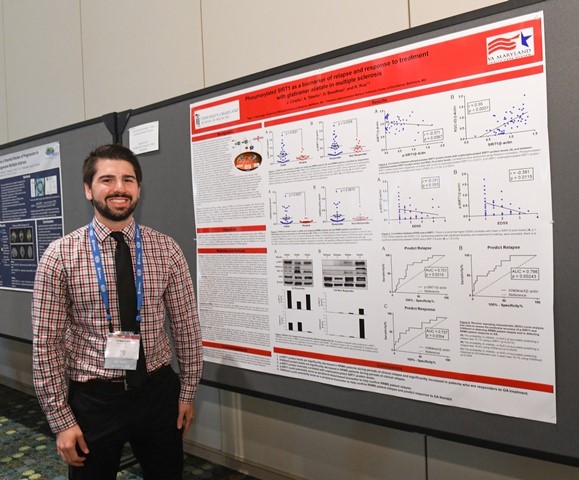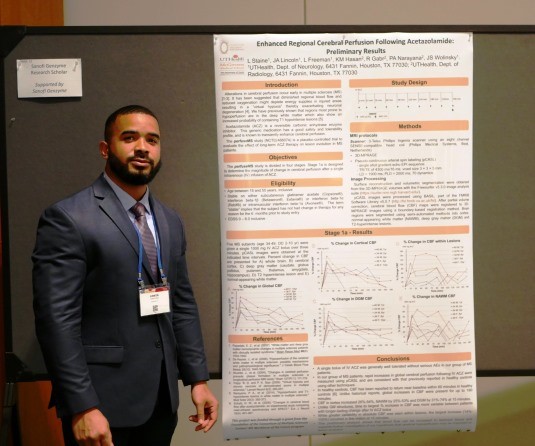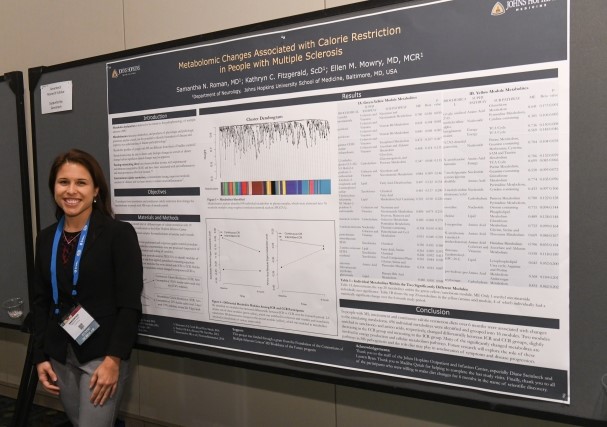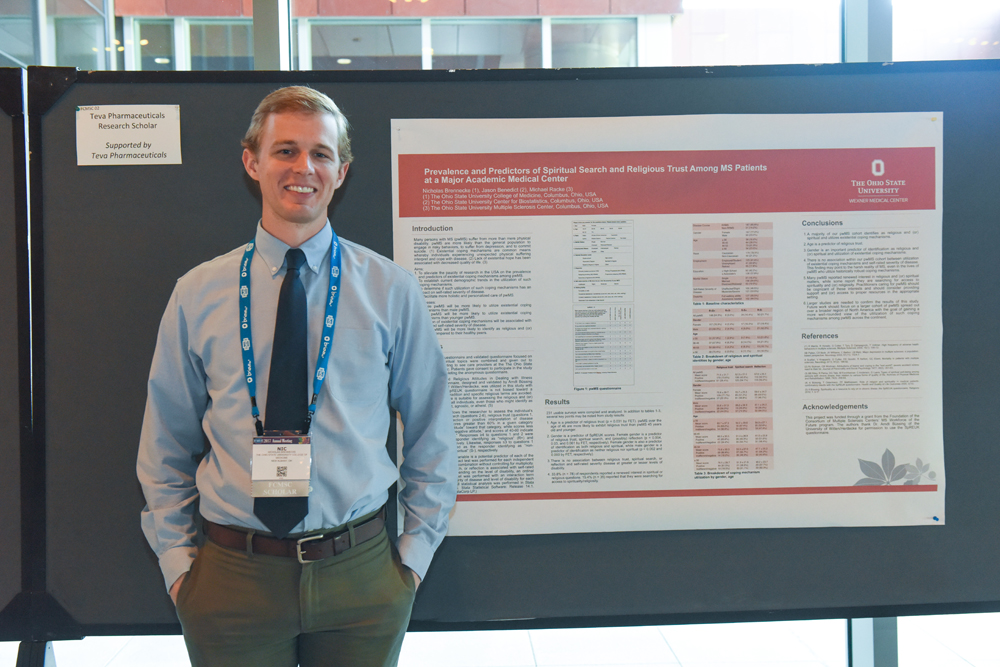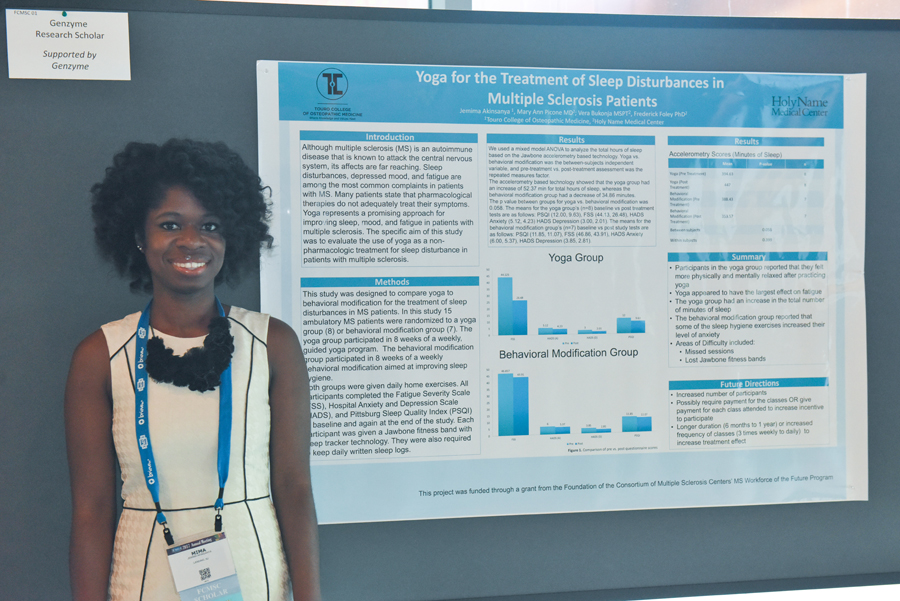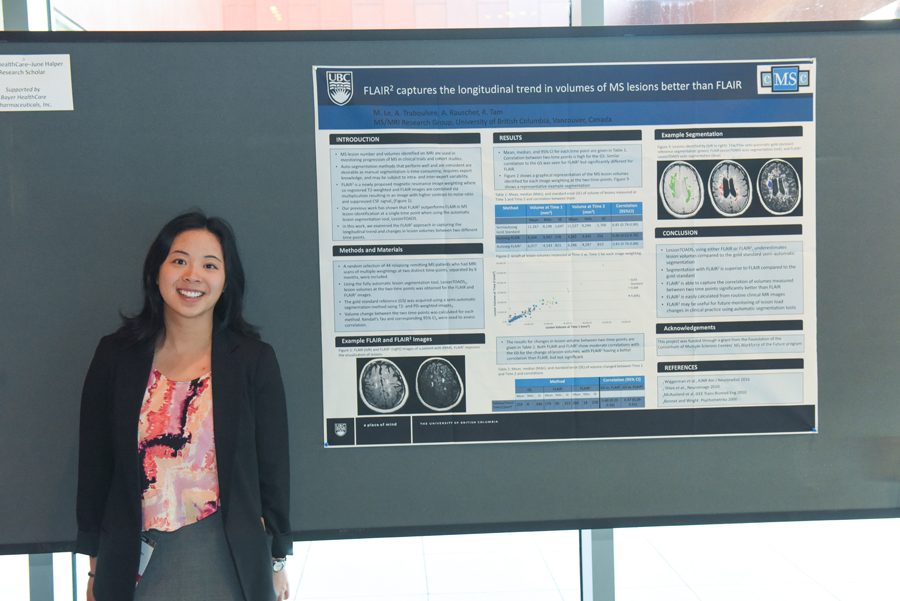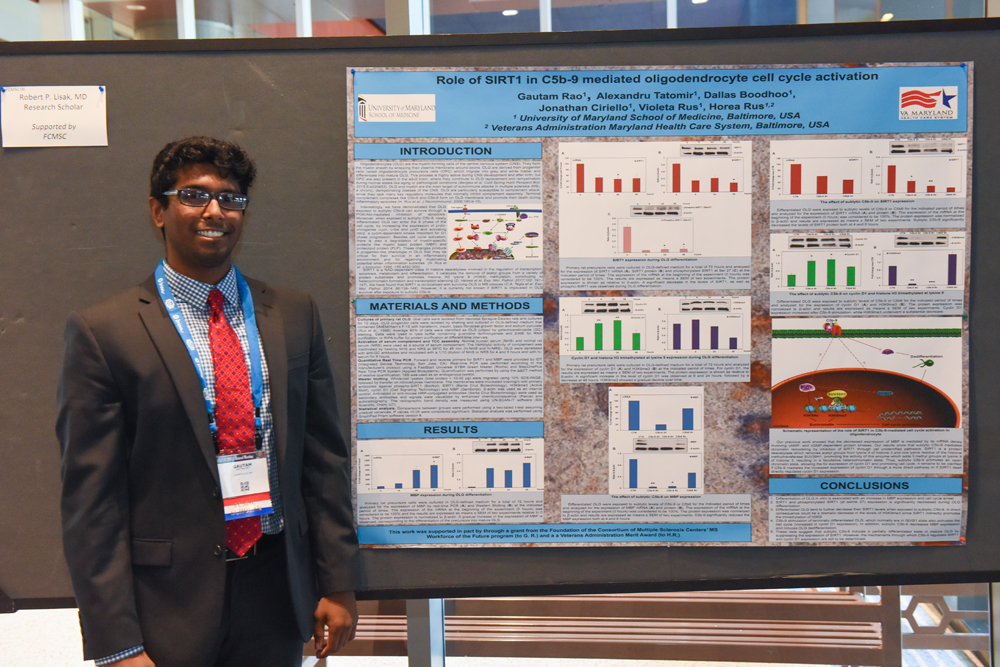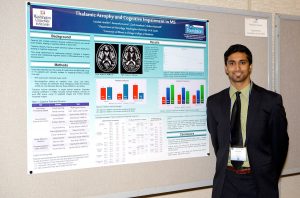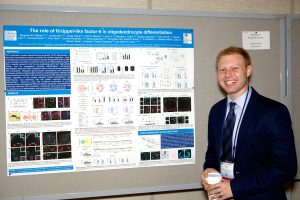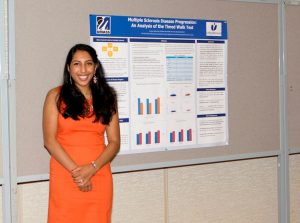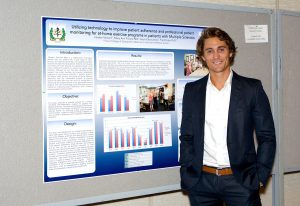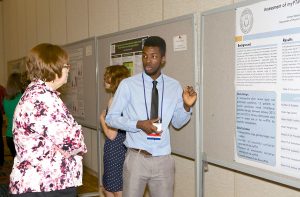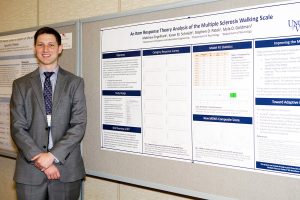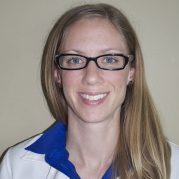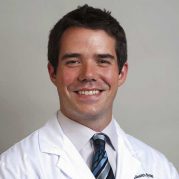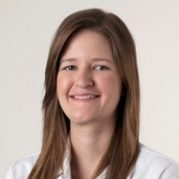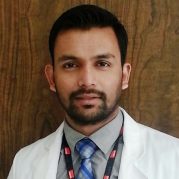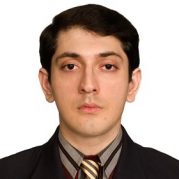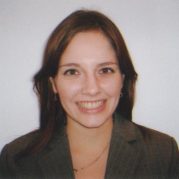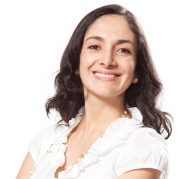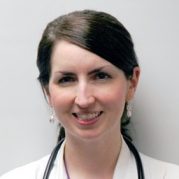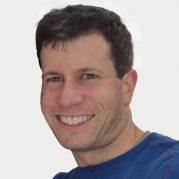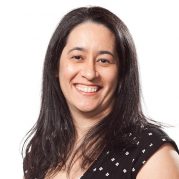Noble Jones
Medical Research Student Scholar and Presenter
Project Title: Predictors of Intrathecal Baclofen Therapy Outcomes in Multiple Sclerosis Patients
Project Mentor: Francois Bethoux, MD
The knowledge I learned during my mentorship is that multiple sclerosis is a very dynamic unrelenting chronic disease that require frequent reassessment to help patients adjust to their evolving loss of function with one of the goals being to maintain independence during the disease natural history. As a future physiatrist and bioengineer, I hope to innovate technologies that can help to achieve this goal in the absence of a cure for the disease.
Participating at the CMSC Annual Meeting offered me the opportunity to connect with other researchers, learn more about the pathophysiology of MS and new therapies I had no prior knowledge of.
I start internal prelim residency at Duke University after which I will complete my residency in physical medicine and rehabilitation at Kessler/Rutgers University.
Sonya Steele
Medical Research Student Scholar and Presenter
Project Title: Magnetic Resonance Imaging and Clinical Findings in Healthy, Genetically Characterized Asymptomatic First-Degree Relatives of Multiple Sclerosis Patients and Healthy Controls
Project Mentor: Daniels S. Reich, MD, PhD
The outstanding mentorship I received from Dr. Daniel Reich and Dr. Irene Cortese have given me a greater appreciation of the significance of clinical research as a basis for improving the lives of people affected by MS. This experience has allowed me to gain valuable insights into the pathophysiology of MS and has helped me better understand how differently MS impacts each patient and their family. As I embark on residency training in Child Neurology, I will carry with me the personal stories of persons with MS and their relatives that have taught me so much about this complex disorder. I am also excited to continue my clinical and research efforts in this area in the hopes of improving the quality of life for persons and families with MS.
Regarding the sessions at the CMSC Annual Meeting I especially enjoyed the clinical and interdisciplinary focused activities and sessions, particularly those that provided insights into the pathophysiology of MS and aided in my understanding of how different MS and therapeutics may affect each individual. I am grateful for the opportunity to hear Dr. Anne Cross speak at our Scholar Recognition Luncheon. Her words and message to us were inspiring! I also found it inspiring to get to know people whose lives have been touched and impacted by MS, as well as fellow medical and other professionals-in-training who share my passion and inters tint the field.
I am enrolled in a 5-year combined Pediatric Neurology residency program at Johns Hopkins in Baltimore, MD and currently in my first year of residency training.
Samuel Marcucci
Medical Research Student Scholar and Presenter
Project Title: The Effect of Ocrelizumab on Lymphocytes in Multiple Sclerosis Previously Exposed to Lymphocyte Depleting Agents
Project Mentor: Aram Zabeti, MD and Ahmed Obeidat, MD
The most valuable learning experience related to MS that I derived from my research project was having the opportunity to be involved in every part of the research project, from design to analysis, is a rare and extremely valuable opportunity for a medical student. The clinical nature of my project also gave me some exposure to what is involved in the care of MS patients, as well as ideas for other project to do in the future. This mentorship was an excellent first step in my path to becoming a neuroimmunologist. It was my first experience in a clinical research project. This scholarship and mentor experience cemented my decision to strongly consider specializing in MS.
I think attending and presenting my project at the CMSC Annual Meeting helped me to confirm that MS/neuroimmunology is the perfect career for me. I was able to hear new scientific perspectives that I had never heard before, such as Dr. Trapps’ lecture. I was also able to experience the great community that exists in MS
I am in my third year doing clinical rotations. I will be preparing to apply for a neurology residency.
Alex Waldman
Medical Research Student Scholar and Presenter
Project Title: Sexually Dimorphic Multiple Sclerosis Pathogenesis and Progression
Project Mentor: William Tyor, MD
My mentorship experience with Dr. Tyor during was wonderful! He taught me a lot about the grant peer review process, collaborative endeavors, and the logistics of conducting organized clinical research. Not only did I learn about experimental and clinical techniques (ie biochemical assays and MRI), but I spent a great deal of time learning the regulatory components of human subjects research. Overall, all skills gained will be extremely translatable as I move forward in my training and career.
Attending the CMSC Annual Meeting was a great way to engage with a diverse group of clinical professionals and patients living with MS. It provided me with novel insights into multidisciplinary care and pathways to pursue caring for patients with immunological conditions. The Scholar reception and luncheon provided ways to meet clinically-minded people at all stages of training and get feedback on my research project. In addition, my PhD focus is genetics of multiple sclerosis and learned a tremendous amount from the session chaired by Dr. Baranzini.
I am in my second year of my PhD as part of the National Institute of Health Oxford scholars program. In three years I will return to Emory University to complete medical school.
Leena Suleiman
Medical Research Student Scholar and Presenter
Project Title: Biosensor Detection of Upper Limb Dysfunction in Multiple Sclerosis Parent Study -TRAC MS
Project Mentor: Jennifer Graves, MD, PhD
Working on my research project alongside Dr. Jennifer Graves and learning with and from fellow students who had been awarded this scholarship to further MS research has been a tremendous opportunity. I’ve learned to appreciate the value of mentorship and perhaps more critically, recognized what meaningful and supportive mentorship is in practice. I received enormous guidance not only in conceptual and planning phases of undertaking research project, but, too, in the day-today tasks of data collection, data management, manuscript preparation, revisions, and working with collaborators at different sites. These skills are readily transferrable to future research endeavors
I am deeply indebted to the generous and forward-thinking of the FCMSC in sponsoring students to contribute to the MS research aimed at improving both clinicians’ ability to meaningfully capture symptoms and their progression and to also advance therapeutics to improve the health and lives of patients suffering from MS.
The conference was fantastic and enjoyed the opportunity to peruse the various projects that were presented, but I especially appreciated the Scholar’s luncheon. It was great to meet with the other students, learn about their projects, and listen to the various speakers. The discussion of careers in MS was the highlight of the conference to me.
I am taking leave to complete research in medical education then return to fourth-years clinical rotations. I am currently interest in pursuing a career in Neurology or combined neurology-Psychiatry.
Kim Young
Medical Research Student Scholar and Presenter
Project Title: Visual and MRI Outcomes in Pediatric Multiple Sclerosis
Project Mentor: E. Ann Yeh, MA, MD, FRCPC, Dip ABPN
Working with Dr. Yeh who is as skilled and knowledgeable of a researcher as she is a clinician, has taught me valuable insight into the complexities of clinical research, and how to apply knowledge gained as a physician to inform research questions and methodologies. I feel incredibly fortunate given this opportunity to participate in MS research and clinical care. As a future physician, it is important to gain insight into and contribute to clinical research that will advance patient care, complemented with clinical exposure that contextualizes the work I am doing. My project allowed me to explore new technological approaches to assessing structural changes in children with MS, as well as participating in MS clinics and rounds in the hospital. This holistic experience in multiple sclerosis clinical research and care has been one of the highlights of medical school thus far.
The scholars’ reception as well as the scholar’s luncheon was a great way to network with other medical students across different years, as well as other researchers/supervisors in the field. The meeting provided exposure to the current research being done in MS care and helped solidify my own repertoire of knowledge about MS treatment.
I am in my third year and begin rotations as a clinical clerk.
Lauren Hall
Medical Research Student Scholar and Presenter
Project Title: The Role of Gut Microbiota in Relapsing Multiple Sclerosis
Project Mentor: Carolina Ionete, MD, PhD, MD
This project allowed me to explore the field of clinical research during my medical school education. I gained insight into how to design a research project utilizing human samples and in collaboration with scientists outside of medicine to complete a complex analysis of samples. Furthermore, this research has given me a wealth of knowledge surrounding the pathology of MS and has provided a solid framework for my future as a clinician.
This research experience provided me with the funds to continue exploring a topic that I am passionate about. It motivated me to present my research at other conferences as well. I have a deep and personal connection to MS. I have always steered my academic pursuits towards neurology and now neurorehabilitation. This project allowed me to broaden my knowledge about a disease I am already passionate about.
I am a fourth year medical student, doing several rotations in physical medicine and rehabilitation. I will also be continuing my research on MS and the microbiome.
Alexander Liam Pearson
Medical Research Student Scholar and Presenter
Project Title: Moderate-to-Vigorous Physical Activity is Positively Associated with the Retinal Nerve Fibre Layer Thickness in Pediatric Multiple Sclerosis
Project Mentor: Ann Yeh, MD, MA, FRCPC, Dip ABPN
During my mentorship, I learned about MS through the eyes of both clinicians and patients. I have gained knowledge in epidemiology, etiology, diagnosis, and the treatment of MS, and I have developed valuable clinical and research skills. I will carry these with me into my future as a physician and researcher.
This was a very valuable experience, I am very fortunate to be an FCMSC Scholar and the skills and knowledge that I have gained will serve as a foundation for my future work in MS.
I really enjoyed the Scholars Reception and Luncheon, as well as attending conference workshops and presentations which has helped me to network in the field of MS.
I am in my third year of medical school at the University of Ottawa, Ontario, Canada.
Jonathan Ciriello
Medical Research Student Scholar and Presenter
Project Title: Phodphorylated SIRT1 as Biomarker of Relapse and Response to Treatment with Glatiramer Acetate in Multiple Sclerosis
Project Mentor: Ann Yeh, MD, MA, FRCPC, Dip ABPN
My presentation and participation at the Annual Meeting has given me more information about Multiple Sclerosis and the type of physicians working and doing research in the field. Presenting to a small audience gave me the opportunity to interact more with individual people.
This experience was valuable in developing my research knowledge and exposing me to the field of MS. It helped me strengthen my relationship with my mentor and has given me a valuable opportunity to present my work at the conference.
I am a 4th year medical student.
Lewin Staine
Medical Research Student Scholar and Presenter
Project Title: Enhanced Regional Cerebral Perfusion following Acetazolamide: Preliminary Results
Project Mentor: Leorah Freeman, MD, PhD
During my time of research with the team of Dr. Leorah Freeman, I learned a great deal about a field I knew very little about prior, other than personal experience with friend and family suffering with MS. The unconventional approaches taken and innovative thinking were things that kept the research exciting for me, someone who did not enjoy the ‘wet lab research’ experience throughout undergraduate. Having a real relationship with the patients throughout the 12 weeks program, as well as seeing some of those very same patients in the MS clinic, has developed my professional as well as personal skills. This is something that I will be able to take with me and further my career.
Presenting at the Annual Meeting was a great opportunity to mingle with other professionals at all levels of medicine from professors, to researchers, to doctors, to other students and the contact alone will help me tremendously. Having the opportunity to have some critique and questions asked of my own research allowed me to come back and take it in a different direction.
I am in my 3rd year at McGovern Medical School.
Samantha Roman-Fox
Medical Research Student Scholar and Presenter
Project Title: Metabolomic Changes Associated with Calorie Restriction in People with MS & Metabolomic Changes Associated with a Time-Restricted Diet in People with MS
Project Mentor: Ellen Mowry, MD, MCR
Through this project, I not only learned how to conduct a research study from start to end but also developed many skills critical to clinical research, such as how to draft a grant proposal, abstract and begin to draft a manuscript for peer-review. Dr. Mowry was an excellent mentor who provided guidance as needed, but also allowed me the independence to have ownership over the project, which is ultimately why I learned so much from this experience.
I was already interested and passionate about the field of neurology and specifically clinical care and research in MS but this has solidified my passion in this area of work. In addition to being able to conduct clinical study, meet and interact with patients, and gain valuable abstract and manuscript writing skills, this experience has also provided excellent networking among MS providers at my institution.
Presenting my project at the Annual Meeting allowed me the first opportunity to attend a scholarly meeting solely focused on MS to help me get an idea of career paths others have taken and to meet other clinicians and researcher in the field.
I am completing my intern year before continuing on to neurology residency training.
Nicholas Brennecke, MD
Medical Research Student Scholar and Presenter
Project Title: Prevalence and Predictors of Spiritual Search and Religious Trust Among MS Patients at a Major Academic Medical Center
Project Mentor: Michael Racke, MD
Perhaps the most important knowledge gained from this research project was a better grasp of a proper approach to robust clinical research. From my mentor Dr. Racke. I learned to analyze my own results realistically to compare my results with previous work on the topic and to glean all that I can from all data collected. These lessons learned have been invaluable. I am also impressed by the impact that one mentor can have on the career path of a mentee.
I am so grateful for the support of the FCMSC to conduct clinical research related to MS and to attend the CMSC annual meeting. This project brought together my broad interest with regard to a topic related to MS and cemented my interest in MS. Attending the conference and presenting my research was yet another confirmatory factor in my path toward Neurology/MS.
I am a PGY-1 Adult Neurology resident at Case Western/University Hospitals Cleveland Medical Center.
Jemima Akinsanya, MD
Medical Research Student Scholar and Presenter
Project Title: Yoga for the Treatment of Sleep Disturbances in Multiple Sclerosis Patients
Project Mentor: Mary Ann Picone, MD
During my mentorship I learned the importance of tailoring treatment to a patient’s individual needs. Since MS has such multifaceted effects, my mentor taught me that as a provider it is important to think outside the box on ways to better improve patients’ quality of life. I also learned how vital it is to have a strong therapeutic alliance with a patient.
It was a great experience being able to present my project and answer questions about it. It was also great to network with other residents. I learned about different programs available for residents interested in MS.
I am a second year neurology resident at Emory and working on starting a new research project with the MS department this year.
Megan Le
Medical Research Student Scholar and Presenter
Project Title: Longitudinal study examining the relationship between FLAIR’2 and disability status in MS patients
Project Mentor: Anthony Traboulsee, BSc, MD
The MS research mentorship was an extremely valuable experience that will help me become a better clinician and researcher. Learning how to come up with a research hypothesis and text it is something that can only be taught through experience and with the guidance of experience researchers.
I really enjoyed the scholar’s luncheon as it was a great opportunity to meet fellow medical students as well as residents who are involved in the FCMSC. Being able to present my poster at a large conference was also extremely valuable learning opportunity.
I will continue my studies at University of British Columbia.
Gautam Rao
Medical Research Student Scholar and Presenter
Project Title: Role of Histone Deacetylase SIRT1 in Oligodendrocyte Survival in Multiple Sclerosis
Project Mentor: Horea G. Rus, MD, PhD
My project entailed more of the biomolecular aspect of oligodendrocyte function and repair and this experience allowed me to get a better grasp at the specific process of disease and helped me understand the different treatment modalities available.
Attending the lectures at the CMSC Annual meeting was very informative in understanding the current guidelines and research occurring in MS research.
I am in my third year of medical school and will most likely apply for neurology residency.
Vaishak Amblee,
FCMSC Research Scholar
Vaishak Amblee, 2014 FCMSC Research Scholar presenting his project at 2015 Annual Meeting in Indianapolis, IN, 3rd year medical student at University of Illinois at Chicago College of Medicine.
Project Title: Cognition and Early Thalamic Atrophy.
Project Mentor: Robert Naismith, MD.
How will your presentation and participation at the CMSC Annual Meeting assist you pursuing your chosen career path?
I made new connections with some of the residency program coordinators and directors that I think will be helpful for my future professional goals.
What knowledge did you gain during your mentorship that you believe will contribute to your current or future professional growth?
Shadowing my mentor allowed me to gain meaningful insight into the clinical aspects of neurology and also into the clinical and research aspect of MS care. Through my research and clinic rotations I was able to appreciate the wide variety of MS patients, the diversity of their individual disease pattern, and the personalized care that had to be tailored to their needs.
Benjamin Laitman,
FCMSC/Genentech Corporation Research Scholar
Benjamin Laitman presenting his project at the 2015 Annual Meeting in Indianapolis, IN, PhD candidate in Neuroscience.
Project Title: Kruppel-Like Factor-6 Integrates Promyelinating Inputs to the Oligodendrocyte Differentiation Program, and is Essential for CNS Myelination.
Project Mentor: Gareth John, VetMB, PhD.
What is your personal evaluation of this experience in multiple sclerosis?
This experience allowed me to really get a good understanding of some of the basic mechanisms behind a disease which has affected family and friends of mine. I am proud to be contributing and presenting on such a topic and hope this will serve as a step for me in pursuing this field as a career in the future.
How will your presentation and participation at the CMSC Annual Meeting assist you pursuing your chosen career path?
Since most of my focus of my MS research has largely been bench research, participating in this meeting allowed me to see more of the clinical projects/ideas out there in the MS field. I was able to connect with MS clinicians at my institution and others that will hopefully be long-lasting relationships as I progress in my career.
What were the most valuable learning experiences related to MS derived from your research project experience?
I was able to delve into a very basic question in MS research, giving me an appreciation for the complexity of this disease.
Jyotsna Mullur,
FCMSC/Acorda Therapeutics, Inc./Steven R. Schwid, MD Memorial Research Scholar
Jyotsna Mullur presented her project at the 2015 Annual Meeting in Indianapolis, IN, 4th year medical student at University of Massachusetts Medical School.
Project Title: Analysis of the 25 Foot Timed Walk Test as a Predictive Factor in Multiple Sclerosis.
Project Mentor: Carolina Ionete, MD, PhD and Peter Riskind, MD, PhD.
What is your personal evaluation of this experience in Multiple Sclerosis?
This experience studying multiple sclerosis provided me with an immersive and in depth education in the field of neuroimmunology, a field that was intensely fascinating to me due to its interdisciplinary approach. I enjoyed the wide breadth of study, from the nuances of brain chemistry, but also to the more tangible markers of patient disability. Making these connections was a crucial part of my learning experience, and was fundamental in helping me clarify my desire to pursue a career as a neurologist. My mentors were dedicated to my education and my success, and i am grateful for their guidance. This experience has been one of the most rewarding parts of my medical school career, and I feel privileged and honored to have been given the opportunity to study a subject which I have become passionate about.
How will your presentation and participation at the CMSC Annual Meeting assist you pursuing your chosen career path?
It was a valuable opportunity to present at an international conference, learn from leading investigators in the field, and improve in research methods.
Hunter Vincent,
FCMSC/June Halper Research Scholar
Hunter Vincent presenting his project at the 2015 Annual Meeting in Indianapolis, IN.
Project Title: Utilizing Technology to Improve Patient Adherence and Professional Patient Monitoring for At-Home Exercise Program in Patients with Multiple Sclerosis.
Project Mentor: Mary Ann Picone, MD.
What knowledge did you gain during your mentorship that you believe will contribute to your current or future professional growth?
I gained valuable experience in patient interaction. Learning to balance medical, psychological, and physician therapy knowledge to provide well-rounded patient care.
What is your personal evaluation of this experience in multiple Sclerosis?
I believe this Remote-Monitored Tele Relay program can potentially change how we treat MS patients and provide patient care to patients.
Lukmon Babajide,
FCMSC Research Scholar
Lukmon Babajide presented his project at the 2015 Annual Meeting in Indianapolis, IN, Third year medical student at UT Southwestern Medical School.
Project Title: Effectiveness of Medtronic Intrathecal Drug Delivery Pump Personal Therapy Manager in Spasticity Management (MPTM).
Project Mentor: Fatma Gul, MMM.
How will your presentation and participation at the CMSC Annual Meeting assist your pursuing your chosen career path?
It gives me more exposure in the fields that I am interested in as well as giving me a glimpse of the types of advocacy work that go on within those fields.
What is your personal evaluation of your mentorship experience in multiple sclerosis?
Working with patients that have MS have been an eye opening experience. The determination of these patients, the psycho-social issues that they face, and the hurdles that they go through just to get a simple care are astounding. I am truly happy that I had this experience because it has taught me so much about a community (a rather organized community) that I didn’t really know about before.
Matthew Engelhard, MD
FCMSC Research Scholar
Matt Engelhard presented his project at the 2015 Annual Meeting in Indianapolis, IN.
2016 PhD candidate at the University of Virginia with my research focused on detection and monitoring of walking impairment and other MS symptoms using smart devices.
Project Title: An Item Theory Based Evaluation of Multiple Sclerosis Walking Scale.
Project Mentor: Myla Goldman, MD, MSc.
What knowledge did you gain during your mentorship that you believe will contribute to your current or future professional growth?
There’s too much to name. Dr. Goldman has taught me how to build, create and submit an IRB protocol, then run it, down to the last detail. She taught me how to evaluate disability in MS using a combination of assessments, including the neurological exam, timed walks, MS functional composite, and patient reported outcome measure. She’s helped me to understand how to analyze data, put results in context, and present them to a clinical audience. This is far from a complete list. In short, she’s single-handedly taught me how to do clinical research. I now feel well-equipped to do clinical research on my own.
Please describe the sessions or activities of most professional value to you during the CMSC Annual Meeting.
The scholar recognition luncheon had the most value to me, because it gave me the opportunities to get feedback on my research and connect to others with similar interests. I was even able to identify a potential collaboration. There were so many opportunities to learn and generate ideas at the meeting. Two memorable sessions were the dinner on social media in MS care, and the session on robotics and prosthetics in rehab.
How will your presentation and participation at the CMSC Annual Meeting assist you pursuing your chose career path?
It takes time to learn how to effectively communicate research ideas and findings, so I find it helpful to practice putting together a poster and presenting it to other researchers and clinicians. Since I intend to continue with MS research over the long term, these connections will be an asset as time goes on. Further, the sessions are a great source of new, different ideas, providing a nice supplement to my day-to-day education.
Hear from Annual Meeting Resident Scholars!
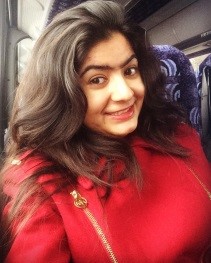
Nurose Karim, MD
“I am a second year resident at the University of Toledo. I was fortunate to attend this program and I am thankful to each and every one of you for giving me this opportunity to be part of MS society. I was deeply influenced seeing great work done in this specialty. I am taking with me a lot of knowledge that I gained and a hope that in the future, we, together will have much better treatment especially for secondary progressive MS.
Finishing my second year, I think it was right time that I attended this conference. Now I have better idea before I apply for my fellow ship. I look forward to be a part of this MS society and I hope I can make a difference in this field.”
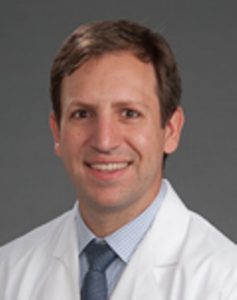
Benjamin Mark Hoffman, MD
“During the CMSC annual meeting the discussion of job application during fellowship and career development was very helpful for me as a 4th year resident. It definitely helped with thinking of what I will look for when applying to either an academic or private practice position in terms of research time/resources.
It was great seeing familiar faces that work within MS in my region as well as meeting new people from all around the country that I will certainly interact with in the future. We were able to discuss similar challenges that we face and discuss the different strategies used to work through them.
I will be in my first year of a 2-year fellowship at Emory Healthcare/Atlanta VA Medical Center.”
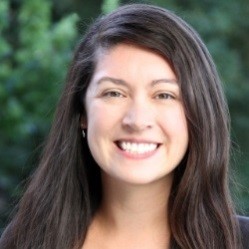
Nina Bozinov, MD
“I just wanted to thank you again for the mentorship program. This was the best program I have ever attended for residents/fellows in MS. Dr. Graves and Sicotte provided us with truly relevant information on the field as well as career development. The panel was outstanding and had the perfect balance. As residents and fellows we rarely hear about the industry side of things so having Alex Goodyear was a great choice.
I will be starting my MS fellowship in a few weeks and staying at Stanford for 2 years as a Sylvia Lawry fellow. I hope I can continue to be involved in CMSC going forward.”
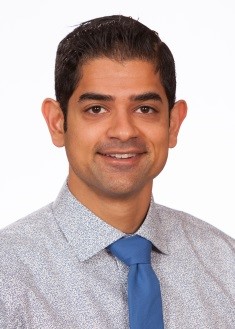
Mark Waheed, MD
“The meeting encouraged me to maintain academic affiliations, stay up to date on the latest developments and helped me form potentially beneficial connections in MS. I put together a PowerPoint presentation and discussed what I learned with my professors.
I am joining a large group/HMO practice as a MS specialty trained neurologist.”
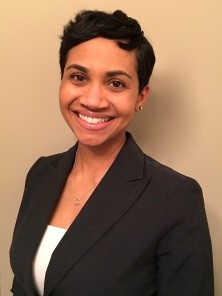
Jacqueline Rosenthal, MD
“The mentorship forum was especially helpful with regards to helping me form a timeline on how to proceed through the remainder of my fellowship and provided very useful information on different career paths. The guidance on what to expect in a primary research/academic setting vs. clinical and/or private practice was beneficial. Learning more about research or clinical care specific to MS enhanced and built upon my knowledge of ongoing MS research and also up-to-date and new/emerging clinical therapies
I was able to meet and have discussions with different individuals from different specialties which I believe is unique to the CMSC Annual Meeting.
I am working on my research project and will complete my fellowship in June 2019.”
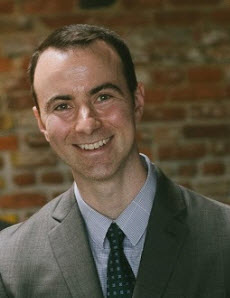
James Gugger, MD – Neurology Resident Scholar
“Attending the CMSC Annual Meeting was definitely influential in helping me determine if I wanted to do sub-specialty training in MS/neuro-immunology. It certainly gave me a glimpse of the cutting edge of research in MS, something that would not be easily accessible with the busy schedule of a neurology resident. The meeting provided an unprecedented opportunity to meet leaders in the MS field. The scholars’ lunch and dinner was also a great networking opportunity.
I have had the opportunity to teach my co-residents and medical students about the McDonald criteria. The information I learned at the meeting has helped me care better for the MS patients at my institution. Specifically, having a better handle on symptomatic treatments has helped me select the most ideal agents.
I am a PGY-3 neurology resident.”
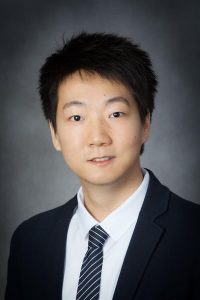
Derek Yuan, MD – Neurology Resident and Mentorship Forum Scholar
“The most professional value I gained during the CMSC Annual Meeting was attending the MS Mentorship Forum. It allowed me to meet people who have similar interests. Overall the Annual Meeting helped me to bring the latest guidelines and management of MS to my colleagues.
I enjoyed every single aspect of the scholarships experience and grateful for the learning experience to expand my knowledge of MS.”
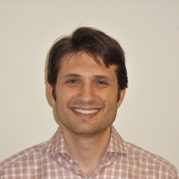
Zach Rohm, MD – Neurology Resident and Mentorship Forum Scholar
“My scholarship to attend the CMSC Annual Meeting affirmed my desire to specialize in MS. My participation at the meeting provided the opportunity to network with many of the MS Fellowship program directors. The information I learned at the meeting has allowed me to better educate my patients about current MS research and new therapies.
I have had several discussions with fellow residents and attending’s regarding emerging concepts in MS diagnosis and treatment. Many of these discussions have changed the management of patients.
I will be completing my PGY-3 year in my neurology residency program.”
Brittani Conway, MD
“The CMSC meeting was an excellent opportunity to expand my knowledge of multiple sclerosis pathology and treatment. During the meeting I attended several lecture symposia that exposed me to both well-established and future directions of multiple sclerosis research.
I was able to meet with future mentors as well as make new connections with expert physicians and future fellows for other programs. This meeting served as an introduction for me to the family of multiple sclerosis experts.
In July 2015 I will start a fellowship in multiple sclerosis at Mayo in Rochester, MN.”
Matthew Tremblay, MD, PhD
“The meeting aided in my career path by offering an opportunity to review the most current treatment strategies and drugs in development. Other useful information included the in-depth session on symptom management.
Professional networking opportunities were plentiful, as a consequence of the numerous prominent faculty discussion leaders and meeting fellows. Information acquired during the meeting is easily translated into useful handouts for residents and other general neurologist for shared decision making.
The sessions of most value were “Multiple Sclerosis: Mistaken Diagnosis” , “Clinical Application of Disease-Modifying Therapies”, and Workshop B “Issues in Diagnosis and Treatment”. These sessions reviewed some of the most challenging aspects of caring for MS patients.
I will be completing my final year of Neurology residency at UCLA during 2014/2015 academic year prior to starting MS/Neuroimmunology Fellowship at UCSF.”
Melanie Ward, MD
“I attended the MASTER MS course and it was probably the best educational experience I have had as a resident. It was well-run and the faculty were amazing. It was truly an honor to have such close interactions with the nation’s leaders in MD. I plan on encouraging several of our residents to apply for the course next year because of the great experience.
My participation helped me feel much more prepared to manage MS patients as a senior resident and a fellow and learn about newest disease-modifying therapies.
I will be completing my 4th year of residency, then plan to complete a fellowship in clinical MS at University of Virginia.”
Rahul Shah, MD
“Being able to participate at the CMSC annual meeting has been a wonderful and extremely helpful experience. It has further increased my interest in the field of MS, realizing the true scale of ongoing MS research and innovation in the management. I am considering a fellowship in MS and participating in this meeting has further reinforced that idea.
The symposiums guiding decision making towards MS management in severe progressive disease states and selection of pharmacological agents were very helpful since those are the most challenging decisions faced as a physician treating MS patients.
The information and knowledge I have gained from the meeting, I hope to share with my colleagues back in my home institute through discussions and lectures. I have already had small group discussions and talks with my co-residents and students about the latest updates in MS management and treatment options available and I hope to continue to do so.
I will continue my residency at The University of Texas Medical Branch.”
Ayaz Khawaja, MD
“I primarily attended the conference to improve my knowledge and understanding of MS. Both during and after my residency, I feel better equipped and more comfortable trying new treatments for my MS patients. It is not possible to learn everything about MS just by reading journals, which is why it was so important to learn directly from the experience of experts who’ve been treating MS for years.
Also, the participation brought to my realization how multi-disciplinary is MS care: involvement of physicians, nurses, nurse practitioners, physical and occupational therapists, urologists, pain specialists, social workers, etc, all of whom are key to ensuring the best coordinated care for the MS patient.
I will be finishing my PGY3 training year in neurology.”
Tiffani Stroup, DO
“My participation at the CMSC annual meeting was an excellent networking and educational opportunity as I am starting my MS fellowship. There were good non-biased presentations on different aspects of MS care.”
The sessions that provided the most professional value to me were “OCT research talk and alternative therapies in MS especially marijuana use in MS.
I am an MS fellow at the University of Chicago.”
Tania Reyna, MD
“I think the meeting was an excellent way to meet other residents and fellows that enjoy working and learning about MS. I will share the updates learned in MS during the meeting with my fellow residents in upcoming group discussions.
I will be joining the faculty at the University of Oklahoma, and I am proud to say that the focus of my practice will be multiple sclerosis. I am already making plans to attend the CMSC annual meeting in San Diego next year.”
Jacqueline Nicholas, MD
“The meeting allowed me to hear about the latest advances in the field of MS and to network with some of the experts in the field as well as with other neurology residents who are interested in the same career path.
The conference allowed me to continue to develop my knowledge and opinions on the clinical care of MS. The information I learned from attending these sessions has helped to spark new research ideas and interests which I hope to further investigate during fellowship.
I had the opportunity to listen to lectures given by leaders in the field and also to meet with some of them during the meeting. This was a wonderful experience to be able to discuss MS with many of the experts all in one place.
I will be a Neuro-immunology/MS Fellow at The Ohio State University. As part of my fellowship, I will be working to obtain an MPH in Clinical investigation to build the foundation to do clinical research in MS throughout my career.”
Matthew Bellizzi, MD, PhD
“I particularly enjoyed the symposium on progressive MS chaired by Ben Segal, the Whitaker track lectures, and Paul Matthew’s talk on assessing the improvement in longstanding MS. The format allowed for some great scientific discussions among the speakers and audience members during the Q&A sessions..
With presentations across the spectrum from basic science to the practicalities of clinical care, the meeting was very helpful for me in learning how to better investigate progression and neurodegeneration in MS patients via new techniques in MRI, OCT and cognitive testing.
I am starting a combined research and clinical fellowship in neuroimmunology.”
Zulma Hernandez Peraza, MD
“The overall experience was excellent and it enriched my education during my fellowship training in MS and neuroimmunology.
The sessions taught me how I can approach delicate topics with my patients and to include the family when determining the impact of the disease on quality of life.
The meeting gave me the opportunity to meet with professors and experts in the fields clinical and research neurology, rehabilitation and nursing. After each session I discussed my questions with the instructors.
I will continue my fellowship training in MS which will focus on clinical research in MS and the development of an academic career.”

